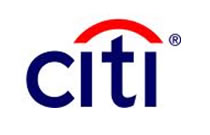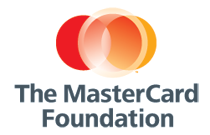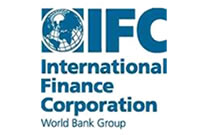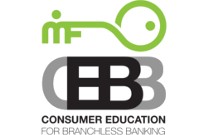What?
HOW CAN WE HELP YOU?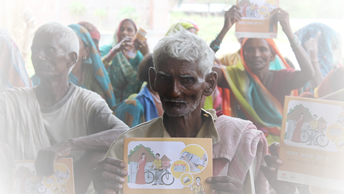
What financial inclusion obstacle are we supporting low-income people to navigate? What financial capability are we attempting to enable or develop? What – gives you access to MFO’s select publications organized around the content of a financial education curriculum or training manual. You can also gain access to the full set of Global Financial Education Program materials here.
Not finding what you are looking for? Click here.
March 2021 Update: One Year of COVID-19 in Bangladesh
In this week’s Garment Worker Diaries blog, we bring the study up to date through March 2021. While employment and wage data are back to normal since the onset of the COVID-19 pandemic, and illness rates have not risen to alarming levels, food security rates dipped last month for the first time in a long while. In addition, there are news reports that the COVID-19 situation in Bangladesh is worsening, with a strict lockdown in place.
Garment workers are still going to their factories, however, and we’re still in a position to keep interviewing them. Please read the full blog, and check back here soon to see if there have been any more important updates from Bangladesh.
As always, if you have any questions for us or the workers, please write to questions@workerdiaries.org
Warning: count(): Parameter must be an array or an object that implements Countable in /home/microf13/public_html/wp-content/themes/mfo/modules/looking_for_something_query.php on line 51

Digital Pay Consistency
In this week’s Garment Worker Diaries blog, we’ll continue discussing the relationship between worker economic resiliency and digital finance by talking about the consistency of digital wage payments.
It turns out that there is a detectable relationship between improved food security among garment workers in Bangladesh and the consistency with which those workers receive their pay digitally. We have a simple theory as to why this is so. Please read on for the full story.
As always, if you have any questions for us or the workers, please write to questions@workerdiaries.org
Warning: count(): Parameter must be an array or an object that implements Countable in /home/microf13/public_html/wp-content/themes/mfo/modules/looking_for_something_query.php on line 51

The Importance of Digital Account Management
Today we are publishing the third installment of our series of blogs on economic resilience. In this blog we address the question: why would garment workers with more experience using a digital account have bounced back from the negative impact of the COVID-19 pandemic more quickly than their peers with less digital account experience?
As laid out in our two previous blogs, we’ve used food security as a prime indicator of economic resilience during the GWD project. The relationship between digital account ownership and food security is complex, but we try to tease out the details by focusing on two types of financial transactions: cash transfers and savings withdrawals. It seems that the frequency and timing of these two types of transactions are intricately related to food security. We hope you’ll read on to get the full picture.
As always, if you have any questions for us or the workers, please write to questions@workerdiaries.org
Warning: count(): Parameter must be an array or an object that implements Countable in /home/microf13/public_html/wp-content/themes/mfo/modules/looking_for_something_query.php on line 51

Resilience and Account Ownership
This past week’s Garment Worker Diaries blog was the second in a series of blogs on economic resilience. It focuses on the relationship between resilience and the ownership of a digital financial account. It is based on analysis we conducted on the relationship between resilience and account ownership and suggests that the latter can improve the former—workers in the RMG sector who had an account prior to April 2020 were better able to bounce back from the crisis they experienced in April than other workers.
This result holds after taking into account the income, other cash flows, and important characteristics of the workers. The blog ends with some suggestions about why this might be the case drawing on a paper by Breza, Kanz, and Klapper. Next week’s blog will explore more deeply the connection between account ownership and resilience.
We hope you’ll check out the full blog, and if you have any questions for us or the workers, please write to questions@workerdiaries.org
Warning: count(): Parameter must be an array or an object that implements Countable in /home/microf13/public_html/wp-content/themes/mfo/modules/looking_for_something_query.php on line 51

Worker Economic Resilience
In this week’s Garment Worker Diaries blog, which will be the first in a series of blogs on the same theme, we begin a discussion about an idea central to this most recent phase of the GWD initiative, which is economic resiliency.
When we speak about resiliency, we mean the ability to avoid, withstand, and bounce back from economic stress. When we speak about the economic resiliency of workers in this context, we mean to ask how well were garment workers in Bangladesh able to cope with the impact of COVID-19 over the past year.
Because we began tracking their resiliency almost immediately when the pandemic began, we are able to have a relatively well informed conversation on how well workers have fared.
Over the next few weeks we will dig deeper into degrees of economic resiliency to find out whether or not certain attributes, such as digital account ownership, gave workers a better shot at enduring what has been a very tough time.
We hope you’ll check out the full blog, and if you have any questions for us or the workers, please write to questions@workerdiaries.org
Warning: count(): Parameter must be an array or an object that implements Countable in /home/microf13/public_html/wp-content/themes/mfo/modules/looking_for_something_query.php on line 51




